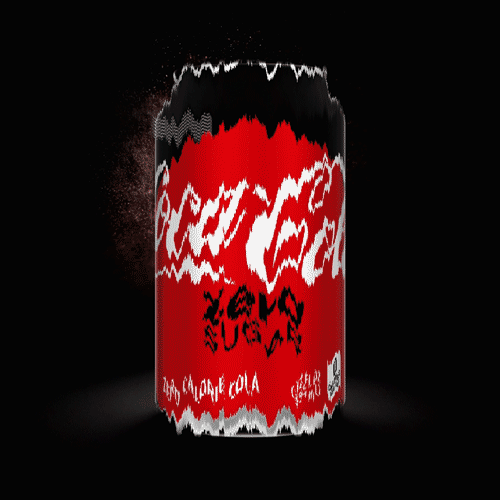No Soda Has Grabbed More Market Share in the Past 20 Years Than Coca-Cola Zero Sugar
With C-suite leaders from iconic brands keynoting sessions, leading workshops and attending networking events, Brandweek is the place to be for marketing innovation and problem-solving. Register to attend September 23–26 in Phoenix, Arizona.
After a stronger-than-expected second quarter, which saw net sales increase 3% to $12.4 billion, the Coca-Cola Company has raised its full-year outlook.
“We are encouraged with our second quarter results, which delivered solid topline and operating income growth in an ever-changing landscape,” James Quincey, CEO of the Coca-Cola Company, said in a statement.
Coca-Cola’s latest earnings success comes at a time when the soda business as a whole is in decline. Between 2004 and 2023, the volume of carbonated soft drinks bought and sold in America decreased 27%, according to trade publication Beverage Digest.
Still, amid the category’s downward trajectory one brand has continued to rise, capturing more market share in the past 20 years than all the others. That brand: Coca-Cola Zero Sugar.
Since debuting in 2005, the sugar-free beverage has grabbed 3.8% of the U.S. market, putting it in seventh place overall just behind PepsiCo’s Mountain Dew.
Pepsi Zero Sugar, which first showed up in America as Diet Pepsi Max in 2007, represents 0.8% of the category.
Duane Stanford, editor and publisher of Beverage Digest, noted that while Coca-Cola variations have come and gone over the years, none have performed as well as Coca-Cola Zero Sugar.
“It is by all measures a success,” he said.
One factor driving Coca-Cola Zero Sugar’s prosperity has been a willingness to change.
Since appearing on store shelves, the brand has reconfigured its formula twice—once in 2017 and again in 2021—to get the taste as close to conventional Coca-Cola as possible.
“Coca-Cola Zero Sugar is an ongoing example of how superior taste drives demand,” Quincey told analysts during an earnings call in February.
The beverage hasn’t shied away from altering its image, either.
Introduced as Coca-Cola Zero in 2005, the brand updated its name to Coca-Cola Zero Sugar in 2017. Four years later, it redesigned its packaging to mimic traditional Coca-Cola, just with black font instead of white.
“The company wants its zero-sugar cola to benefit from 140 years of brand value,” said Stanford.

With 19.2% market share, classic Coca-Cola dominates the soda category. Dr Pepper comes next, followed by Pepsi.
Varchasvi Singh, a foodservice analyst at market research firm Mintel, explained the sweet spot for zero-sugar formulations is creating a product that “meets consumers’ dietary aspirations without requiring them to compromise on taste or change their brand loyalties.”
Major marketing campaigns and a partnership with the NCAA’s March Madness basketball tournament have also contributed to Coca-Cola Zero Sugar’s rise.
In recent years, the Coca-Cola Company has spent more promoting its namesake beverage on national linear TV than its sugar-free option, according to television ad measurement and analytics firm iSpot.tv. Over the past 18 months, however, this arrangement has reversed, as the company has dedicated more advertising dollars to Coca-Cola Zero Sugar. During the first half of 2024, for example, Zero Sugar received $37.2 million compared to Coke’s $18.8 million.
The Coca-Cola Company did not comment in time for publication.
One factor complicating Coca-Cola Zero Sugar’s ascent has been Diet Coke’s descent. While Zero Sugar has climbed 3.8 percentage points since its debut, Diet Coke has fallen 1.9 points.
“For two decades, Coke marketers have faced the difficult job of growing a modern, no-calorie cola brand while managing the decline of an iconic, legacy diet soda with a super loyal, but dwindling, base,” said Stanford. “The trick has been to keep diet consumers in one or the other.”
The Coca-Cola Company reported $45.8 billion in global revenue for 2023, up 6% compared to 2022. By volume, its Coca-Cola brand grew 2%. Coca-Cola Zero Sugar, meanwhile, increased 5%.
https://www.adweek.com/brand-marketing/coca-cola-zero-sugar-soda-market-share/